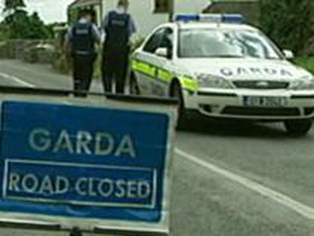Grid West Ireland electricity may be sold to Britain, says Enda Kenny
Off the west coast of Ireland, the annual average wave height is 2.5m-3m, however winter events are substantially greater
The electricity harvested by wind, wave or tidal energy in the west of Ireland may well be lighting up British homes in the future, Taoiseach Enda Kenny said yesterday.
Confidence about developing an export market for electricity was expressed by Mr Kenny when he spoke at the official launch of the Grid West Project at the National Museum of Ireland – Country Life in Castlebar.
Some €240 million is to be spent by Eirgrid on the Grid West project to develop and upgrade the electricity transmission network in the west between now and 2025.
Mr Kenny said at yesterday’s launch that the project would transform the west from being “a Cinderella place” by making the region more attractive for inward investors, particularly those requiring a secure supply of energy.
Mr Kenny said 400KV lines were necessary to allow the west and northwest not only to feed energy in but to feed it out as well.
“As you know, Britain is looking at our potential,” he said.
In the long term, the project will involve two high-capacity power lines from Bellacorick, Co Mayo, to both Cashla, east of Galway city, and Flagford, Co Roscommon.
Yesterday’s launch was also addressed by Minister for Energy Pat Rabbitte. He said the market for energy in Ireland was limited at the moment but the UK represented huge potential for us to export electricity.
The British and Irish governments have begun talking about the possibility of Britain taking some of the electricity generated here.
“We are in discussions with the British government. It hasn’t happened in this fashion between two member states of the European Union before. A prerequisite is an intergovernmental agreement and we are working on the elements of that.”
Grid West project manager Alan McHugh promised a maximum of consultation on the project. It is hoped to have a planning application with An Bord Pleanála by 2015, with construction completed by 2019.
Some 200 people will be employed in the planning stages, with 300 involved in the construction end of the process.
However, Mr McHugh stated, those job numbers “paled in comparison to the number of jobs that would be created by inward investment to the region” which would be stimulated.
Eirgrid has promised “a high level of engagement” with communities which will be affected by the power lines. The company says no decision on the routes of the new networks has yet been taken.
A man is killed in Fatal road crash in Co Donegal


A man has died and two more seriously hurt after their car crashed in Co Donegal.
A young man has been killed and two others seriously injured in a road accident in Donegal.
The three, all men in their early 20s, were in a car that crashed at around 1.30pm near Murlog, near Lifford and close to the border with Co Tyrone.
One was fatally injured at the scene, while the other two have been taken to Letterkenny General Hospital with serious injuries.
No other vehicles were involved in the collision.
A part of the N14 has now been closed, and will be examined by a garda forensic team.
Any witnesses have been asked to contact Letterkenny garda station on 074 9167100, or the Garda Confidential line on 1800 666 111.
Eating fish twice a week protect’s the heart - new guidelines says
One of the two portions consumed a week should be oily fish, such as mackeral, sardine, salmon or trout
Everyone should eat two portions of fish a week to prevent heart disease, leading European experts have said.
Eating fish is probably better for health than taking fish oil supplements because it contains other nutrients not present in the capsules, a conference was told.
Although it is presumed that the heart health benefits of fish come from fish oils, namely omega 3, this has not been proven, experts said.
The new guidance was compiled by the European Society of Cardiology at its conference EuroPrevent in Dublin.
One of the two portions consumed a week should be oily fish, such as salmon, mackeral, sardine or trout, they said as these contain the highest levels of omega 3 fatty acids.
Supplements can be taken by people who do not like fish but they should stick to pharmaceutical grade products because many over-the-counter capsules contain sufficient amounts of omega 3. The recommendation was that those taking supplements should have 1g of omega 3.
The guidance was discussed in a symposium at the conference that evaluated the latest evidence on fish and omega 3 supplements.
Philip Calder, a metabolic biochemist and nutritionist from the University of Southampton, UK, said: “Omega-3 fatty acids are really important to human health, whether you’re talking about CVD, brain or immune health. Heath professionals have a key role to play in educating the public about the beneficial effects of including fish in their diets.”
Mr Calder added: “It’s important that health professionals give clear guidance around the need for patients to take 1g of omega-3 a day to achieve any beneficial effects.
“With over the counter brands containing different concentrations there’s a danger people may not be receiving sufficient intakes.”
However, eating fish was still considered better than taking supplements.
Daan Kromhout, from Wageningen University, in The Netherlands, said: “This is because fish contain all sorts of other nutrients like vitamin D, selenium and iodine that may also be beneficial against cardiovascular disease.
“And we don’t have the final proof that the benefits from eating fish come from the omega-3.
“Fish, it needs to be remembered, don’t provide a total panacea against cardiovascular disease. As well as consuming fish, people need to eat healthy diets, not smoke and be physically active.”
No comments:
Post a Comment